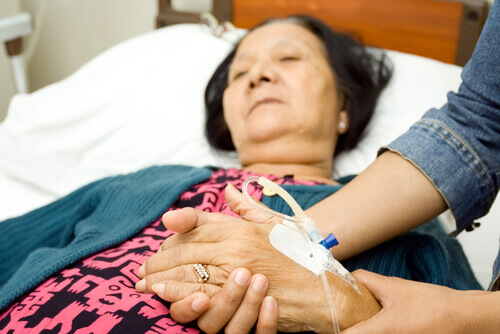In America today, diabetes affects millions. Type 2 diabetes means your body doesn’t use insulin properly, creating irregular blood sugar levels. According to the Centers for Disease Control and Prevention, more than 29 million people in the U.S. have diabetes. In addition, another 86 million adults are pre-diabetic. Uncontrolled blood sugar can cause heart, eye and kidney damage in type 2 diabetes patients. Diet as well as lifestyle changes can help some diabetics control their blood sugar levels. However, some patients also need insulin or other medications to regulate blood glucose. One newer, increasingly popular option is sodium-glucose cotransporter-2 (SGLT2) inhibitors. Invokana (also known generically as canagliflozin) is among the most popular SGLT2 inhibitors available. Unfortunately, these drugs often include serious side effect risks as well as complications.
Invokana: How It Works
Invokana has been prescribed for type 2 diabetes since 2013. This drug works by eliminating excess sugar through urine, which effectively manages blood glucose levels. Being able to maintain normal blood sugar levels is extremely important for overall health. According to the New York Department of Health, low blood sugar can cause dizziness, vision problems or shakiness. And in more serious cases, patients may be unable to swallow or suffer seizures. High blood sugar levels can create equally unpleasant symptoms, including dry skin, slow-healing wounds and diabetic comas.
Diabetics have higher than normal blood sugar levels because they’re insulin-resistant. (Insulin’s the hormone that helps regulate blood sugar levels and converts glucose into energy). SGLT2 inhibitors like Invokana are used to help a person lower their blood sugar levels and stay healthy. Although the drug’s supposed to help lower blood sugar, some patients experienced adverse side effects.
The Problem with SGLT2 Inhibitors
In May, the Food and Drug Administration released a safety announcement about SGLT2 inhibitors, Invokana included. The statement noted that use of these medications could potentially lead to >a condition known as ketoacidosis, where the body produces high amounts of blood acids called ketones. Diabetic ketoacidosis is extremely dangerous and can cause comas to occur or even death. According to the European Medicines Agency, as of May 2015, 101 cases of diabetic ketoacidosis had been reported in patients taking SGLT2 inhibitors.
Ketoacidosis symptoms may include:
- Vomiting
- Unusual fatigue
- Drowsiness
- Rapid breathing
- Confusion
Diabetic patients have enough to worry about without added medication risks.
The FDA warning came too late for many Invokana patients, according to the Institute for Safe Medication Practices. One year after Invokana’s FDA approval, the agency received 457 serious adverse event reports related to renal toxicity. Reports also cited kidney failure, fluid imbalances, as well as urinary tract infections.
The effects associated with Invokana can potentially result in hospitalization for diabetic patients, and sometimes death. Many people believe that Invokana’s benefits aren’t worth its associated risks, which is understandable. In fact, many blood sugar medication options carry less severe side effects and offer better results. According to the American Diabetes Association, blood sugar drugs that aren’t SGLT2 inhibitors include DPP-4 inhibitors, Sulfonylureas as well as Meglitinides. Of course, each type 2 diabetes drug works in different ways to help lower blood glucose levels.
What You Can Do
If either you or a loved experienced adverse effects while taking Invokana, you may qualify for compensation. Get your free Invokana claim review now to see if you may qualify for a cash settlement. An experienced attorney will contact you after reviewing your information to discuss your compensation options.
Related:Invokana Side Effects – Type 2 Diabetic Toe Amputations & Other Risks
